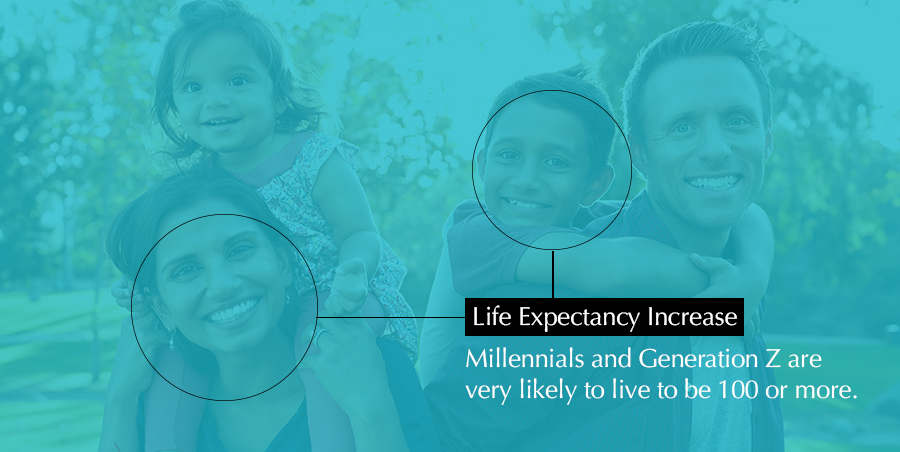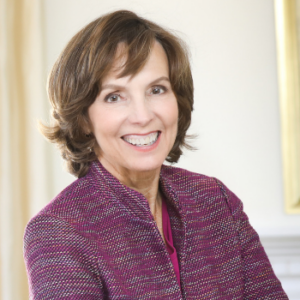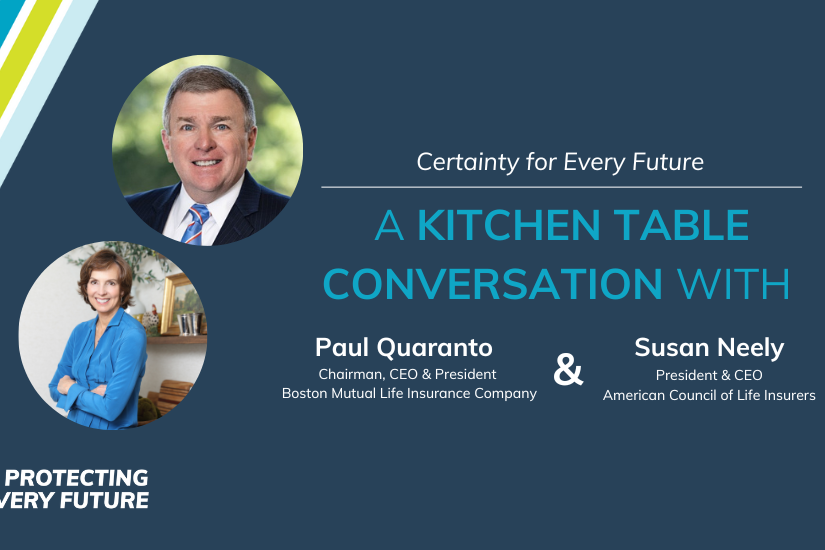Why Financial and Retirement Security Will Be the Policy Issue of the Next Decade

Retirement security will be a policy issue everyone is talking about over the next decade.
Not only is the world’s population growing, but people are living longer too, thanks to advances in medicine and science. This is especially true for our children — the millennials and Generation Z — who are very likely to live to be 100 or more. This is great news for those who are prepared financially, but of deep concern to those who are not. In this dichotomy lies the challenge for policymakers and thought leaders who are already grappling with solutions to ensure all Americans can be prepared for retirement.
These are issues we think about a lot in the life insurance industry. Our industry is unique because we address the risks and questions people ask at all stages across the longevity spectrum: from preparing for retirement, to closing the savings gap, to affording parental leave, to caring for aging parents, to making retirement savings last, to aging in a place where you choose. We are a critical part of the safety net.
On a positive note, we know our retirement system is working well for those who have access to it and are using it. According to research by ACLI, 65% of households are on track or nearly on track to be financially secure. Retirement assets totaled $28.2 trillion – accounting for 35% of all household assets in the U.S. Of particular note, income alone does not determine financial security. 25% of the most financially secure households earned $50,000 or less. How did they do it? They took steps like owning life insurance or disability insurance and having emergency savings as part of a financial plan.
The data paint a more complicated picture as we look at different segments of the population, especially women.
Women face a pay gap – we reach our peak salary levels 10 years earlier than men. Yet, we live longer. We are more likely to need more money in retirement, to live alone in retirement, and to need long-term care. We take on caregiving responsibilities throughout our lives, both for children and aging parents – financially and emotionally, which often means taking time off work. Nearly 1/3 of adult children end up helping their aging parents financially and women are more likely than men to be the ones providing the care. This creates unique retirement challenges for women.
For Hispanic women, two-thirds of Latinas work for employers that don’t sponsor retirement savings plans. And, Latinas age 65+ have a longer life expectancy than most of the U.S. population. Almost three-fifths of African-American women age 65 and over have no retirement income from savings and assets. These Americans face their own set of unique retirement challenges.
Financial security is an issue bigger than one industry, one sector, or one segment of the population. No doubt, finding solutions to this challenge will take a multi-disciplinary approach with a wide-range of perspective and solutions. This is something everyone – whether in the government or private sector – will be paying attention to, and it’s something our industry is laser focused on.
That’s why I’m excited to join a bipartisan gathering of women in Washington, D.C. on Tuesday for the first-ever Elevate Summit to discuss the policy issues of women’s financial security. The event will bring together leaders from government and the private sector to address the issues facing women – retirement security, care giving, and the pay gap. I’ll join a panel to discuss retirement security challenges and ways we can address these challenges, including employer-enabled solutions that expand access to retirement plans and consumer financial education to help all Americans plan and save for the future.
This conference is great timing, too, as Congress is on the brink of passing once-in-a-generation legislation that could greatly enhance America’s retirement system, including provisions that would encourage small employers to join together to offer their workers 401(k) or similar plans, and that would make it easier for employers to offer annuities in their retirement plans. We know the more employers enable savings – whether for retirement, disability, long-term care needs, or others – the more likely women and others will take advantage of them.
Get ready — this conversation is only getting started.





